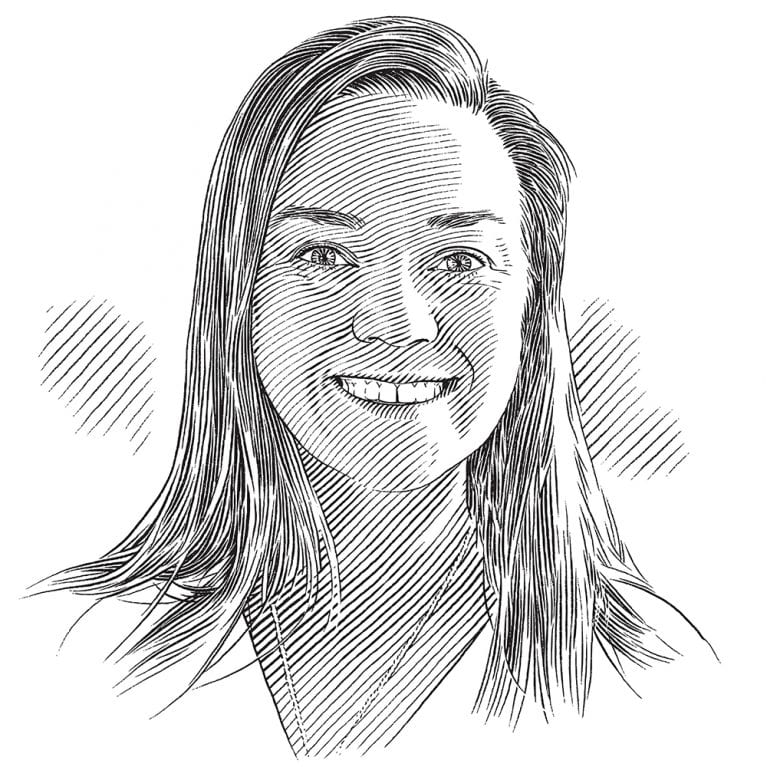Jill Brooks

Who I am
Mum knows best, I suppose, because when I was 10 my mum suggested marine biology as a career and here I am today, a scientist who has been studying sharks for more than 10 years. How did I end up where I am? It wasn’t a linear path. I zigged and I zagged. After growing up in rainy Lancashire in north-west England, I went to Bangor University in Wales for my undergraduate degree. I finished with grades that I decided would not get me a job or into grad school. So I zigged. Still keen on immersing myself in the marine world, I applied for an internship with the Bimini Shark Lab in The Bahamas. It was a pretty overwhelming experience and I felt I was in far over my head. I was surrounded by passionate and talented shark biologists who I genuinely thought would send me home! They didn’t – and I fell for the lab, the sharks, the people and that beloved island that I got to call home for almost half of my 20s. Then I zagged. I left Bimini and moved to the mountains of British Columbia in Canada. I was a housekeeper, landscaper, airline customer service agent and a hot tub technician. I was also applying to grad school. I zigged a little more and now study freshwater fishes. But sharks have my heart and I don’t let too much time pass between visits to the ocean.
Where I work
Sometimes I can be found on a boat holding a hydrophone to track the movements of walleye in a Canadian lake and sometimes I’m shoreside under Florida’s sun speaking with recreational anglers to better understand the survival of released hammerheads. I am a PhD student in Dr Steven Cooke’s Fish Ecology and Conservation Physiology Lab at Carleton University in Ottawa, Canada. I use acoustic telemetry to track multiple freshwater fish species like walleye, bass and pike and I study how they respond to different water conditions in the Laurentian Great Lakes. But I’ve also stayed connected to the Floridians with whom I crossed paths during my years in Bimini. In 2013 I joined forces with Hannah Medd, the founder of a local non-profit organisation called American Shark Conservancy based in Jupiter, Florida. The combination of our academic and NGO experience has created quite a team! Together we are tackling conservation challenges that shark scientists and stakeholders alike need solutions for.
What I do
After a shark has been caught by a fisher, it might be released back into the water. Does it survive? The answer to this question may be a simple ‘Yes’ or ‘No’, but the implications of the answer are important so that shark populations can be managed in a way that both protects the sharks and supports the fishery. The shore-based recreational shark fishery in Florida has been around for a long time, is poorly understood and has recently received much negative attention. Most species of sharks in Florida waters are protected from harvest, so this fishery is largely catch and release. However, some fishing gear and handling practices may be too stressful for physiologically sensitive species to survive. We are working with the angling community to better understand the biological and socio-economic aspects of this fishery. We attach satellite tags to great hammerhead sharks caught from shore and track their movements to see if and when a shark dies, and what might have happened during the capture event to influence its survival or demise. To better understand the social aspects, we interview anglers about their gear type, effort, catch rates and attitudes to conservation, as well as their financial spending, among other topics. This information will then be communicated to anglers, biologists and policy makers to hopefully make this fishery more sustainable for future generations.
